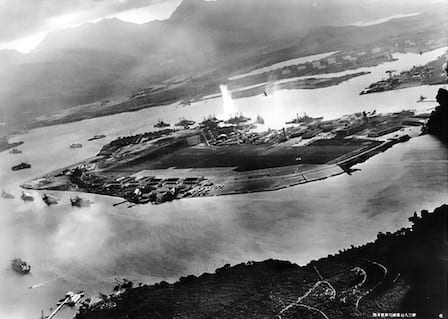
Podcast
Attack on Pearl Harbor: Moments of Crisis
2018’s first TAH.org webinar took place on Saturday, 6 January, and focused on the Japanese attack on Pearl Harbor. Professors Chris Burkett, David Krugler, and John Moser, discussed the reasons behind the attack, the Japanese military and political rationale for the attack and what they hoped to achieve, and how they believed such an attack would enable them to reach their goals. American responses to Japanese involvement in China played a role in driving Japanese policy, in context alongside Nazi views on American character and willingness to shoulder burdens or deal militarily with other great powers. Also discussed is the concept of America’s “reluctant interventionism,” which has become a preferred term among scholars to the more-often used “isolationism” to describe American foreign policy, especially during the years between World War 1 and World War 2.This program, along with digging deeply into a number of interesting questions about the why and how of the attack – as a political and diplomatic, as well as military, event – also forms a comprehensive telling of the story of the beginning of the war in the Pacific, working forward from Japanese expansion in China during the 1930s, and even going back as far as Japanese designs on Asia following World War 1.Suggested books for further reading include…
-
- At Dawn We Slept, Gordon Prange
-
- Countdown to Pearl Harbor, Steve Twomey

